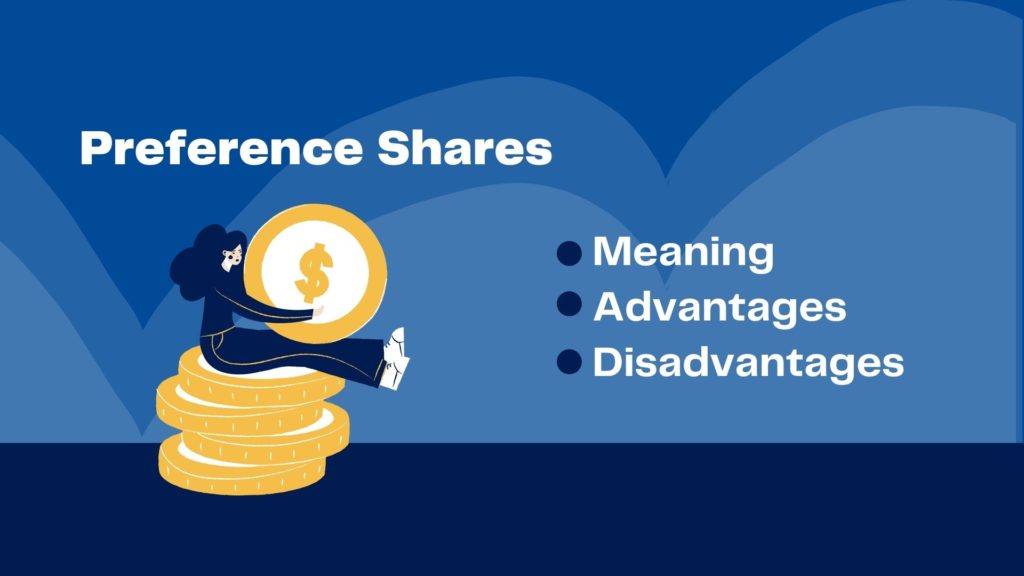Meaning of Preference Shares – Definition, Advantages, and Disadvantages
Table of Contents
Meaning of Preference Shares

What are Preference Shares?
Preference Shares: As the name indicates, these shares have certain preferential rights distinct from those attached to equity shares.
The shares which carry the following preferential rights are termed as preference shares :
a) A preferential right as to payment of dividend during the lifetime of company.
b) A preferential right as to the return of capital in the event of winding up of company.
The holder of preference share have a prior right to receive a fixed rate of dividend before any dividend is paid to equity shares. The rate of dividend is prescribed at the time of issue.
Normally preference shares do not carry any voting power. They have voting right only on matters which affect their interest, such as selling of undertaking or changing rights of preference shares, etc. or the get voting rights if dividend remains unpaid.
The preference shareholders are co-owners of the company but not controllers. These shares are purchased by cautious investors who are interested in safety of investment and who want steady returns on investments.
Advantages of Preference Shares
- It is suitable for investors who want security and safety of returns on money invested as preference shares carry a fixed rate of dividends.
- Preference shareholders enjoy preferential right of repayment of capital in the event of liquidation of company.
- Preference shareholders get preference of dividend payment over equity shareholders.
- Issue of Preference shares does not dilute the control of equity shareholders over the management of the company as they do not have voting rights.
- Preference share capital does not create any charge on the assets of the company therefore the assets may be use to raise long term loans.
- It is beneficial for the equity shareholders as higher dividends may be declared for them in times of higher profits
Disadvantages of Preference Shares
- It is not suitable for those investors who are ready to take risk and need higher returns.
- The issue of preference shares dilutes the control of equity shareholders over the assets of the company.
- The rate of dividend of preference shareholders is fixed, hence in times of higher profits they do not get any benefit.
- Preference shareholders do not have voting rights hence they do not have any say in the management of the company.
- Dividend on these shares is paid only when the company earns profit. Hence there is no assured return for the investors


